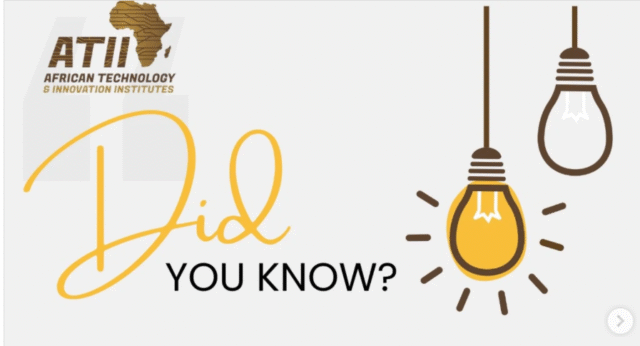African Technology and Innovation Institutes forum has issued a rallying cry at its first-ever African Industrial Forum: the continent stands on the brink of a transformative, tech-led industrial renaissance. More than a summit, this event—held under the banner “Africa’s Future: Shaping Global Industries Through Smart Manufacturing, Automation, and Artificial Intelligence”—serves as a collective call for unity, ingenuity, and action.
Attracting a global audience, including tech experts, policymakers, educators and investors, the forum identified five critical ambitions: supercharging intelligent manufacturing via AI and automation; forging cross-sector alliances; placing youth at the heart of technological progress; channelling investments into regional production ecosystems; and closing skills and workforce capacity gaps. Notably, Nigeria’s robust $1.59 billion manufacturing foreign direct investment in 2023—a 67% rise year‑on‑year—demonstrates the continent’s readiness for this next chapter.
Table of Contents
African Technology & Innovation Institutes holds a transformative forum
In collaboration with key partners like Sabi Africa Network, Adanian Labs, Kwame Nkrumah University of Science and Technology (Ghana), and Arthur Jarvis University (Nigeria), the African Technology and Innovation Institutes forum delivered a week-long virtual experience. This summit united professionals passionate about producing global industrial impact, not for Africa, but from Africa.
During the opening session, host Professor Rose‑Margaret Ekeng‑Itua, internationally recognised for her advocacy in engineering education, declared, “This is more than a forum—it’s Africa’s call to action. Through unity and innovation, we will build an industrial legacy defined by African ingenuity”. Her words resonated, shining a spotlight on the continent’s enduring potential.
Across the forum’s five main goals, the vision was clear:
- Advancing smart manufacturing with AI & automation – Encouraging the adoption of robotics, IoT, and machine learning to revamp production systems from textiles to agriculture.
- Strengthening cross‑sector collaboration – Building bridges among academia, government, industry, and civil society to spark innovation and streamline implementation.
- Empowering youth for high‑tech roles – Launching tailored programs to close skill gaps, ensuring Africa’s young talent is equipped to run modern production environments.
- Mobilising local production investment – Shifting the narrative from import dependency to local-first production, drawing capital into regional manufacturing ecosystems.
- Bridging workforce and skills gaps – Integrating theoretical education with hands-on industrial training and lifelong learning initiatives to produce adaptable, ready-to-scale talent.
These interconnected objectives collectively underpin the ambitious industrial rebirth articulated at the forum.
Why this matters—and what’s next
Africa is no stranger to leapfrogging in technology, from widespread adoption of mobile payments to fintech innovations. Yet data from as recently as 2024 shows the continent remains significantly behind others in its 4IR readiness, often hindered by fragmented efforts, infrastructure shortfalls, and regulatory inconsistencies. The African Technology and Innovation Institutes forum aims to remedy this by placing African voices and solutions at the centre of its agenda.
The forum also builds upon wider continental strides. Landmark gatherings like GITEX Africa in Marrakesh (April 2025), which drew global tech giants to spotlight AI and connectivity, are forging momentum for Africa’s digital transformation. Government-led initiatives—such as Rwanda’s new C4IR centre and Kigali Innovation City—serve as powerful proof points of real-world implementation. And regional bodies, exemplified by the Smart Africa Alliance, are mobilising policymakers to drive ICT access and harmonised planning.
However, while these gains are promising, African stakeholders must remain focused: from improving broadband and energy infrastructure to scaling multilingual AI and big‑data capabilities. As the forum highlighted, Africa’s promising path—from leapfrogging mobile banking to embracing automation—should be matched with investment in digital preparation, policy alignment and education reform.
Looking ahead, the African Technology and Innovation Institutes forum is positioned to become a recurring catalyst. It plans deeper engagement across industry sectors, enhanced public–private partnerships, and continued advocacy for youth empowerment.
A humanised vision for Africa’s industrial future
This movement centres on people. First, the youth—Africa’s 60%‑under‑25 population—are being trained not just for jobs, but to lead the design and operation of automated, AI-driven systems. Second, local communities whose livelihoods depend on manufacturing and industrial activity are benefiting from inclusive, regionally rooted production ecosystems. And third, pan-African unity is emerging as a cornerstone of scale and impact, leveraging shared standards, resource sharing, and policy coherence.
Professor Ekeng‑Itua succinctly framed this ethos: “Africa’s rise demands sustainable, inclusive growth.” To achieve that, the continent must harness its ingenuity, its people, and its ambition.
What comes next?
The forum stressed four key steps forward:
- Policy and regulatory alignment — National governments must craft digital-forward policies aligned with industrial objectives.
- Infrastructure expansion — From broadband and energy to robotics labs, reliable access remains essential.
- Investment vehicles — Governments, development financiers, and the private sector should create incentives for domestic and cross-border investment.
- Education and training — Aligning vocational curricula with smart manufacturing needs ensures Africa’s youth are positioned for success.
When these efforts interlock, Africa could spark a self-sustaining innovation engine—one built from Africa, for Africa, and by Africans.
Conclusion
The African Technology and Innovation Institutes forum is not just a summit—it’s a clarion call. It points the continent toward an era where technology doesn’t merely arrive in Africa—it thrives here. It’s an industrial revolution shaped by African talent, African narratives, and African ambition.
If the forum’s task is to unite, inspire, and focus action, its legacy may well be the transformation of Africa into a global powerhouse, where smart manufacturing, AI, and innovation power economies, uplift communities, and train a generation ready to craft a tomorrow that’s wholly African.
This is the moment Africa moves from being a recipient of technology to being a global creator, ushering in a new industrial age built on homegrown brilliance.
Join Our Social Media Channels:
WhatsApp: NaijaEyes
Facebook: NaijaEyes
Twitter: NaijaEyes
Instagram: NaijaEyes
TikTok: NaijaEyes








































